Fair Trade
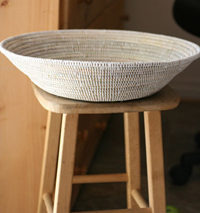
Wolof women in rural Senegal craft these vibrant baskets from a local grass called njodax and strips of plastic used in the production of bazin (prayer) mats. Many of the men in the community work far from the village, and weaving fair trade baskets allows the women of the household to contribute to the family’s income.
Size: 14″D x 4″ – $30
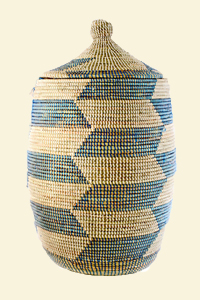
This hamper is hand-woven from African grass and recycled plastic with a clean and modern blue pattern. Useful in the bedroom, laundry room or any other space needing a decorative storage solution, the hamper holds a washer-load of laundry perfectly. Handles allow for easy portability.
Size: 16″D x 26-28″H – $175
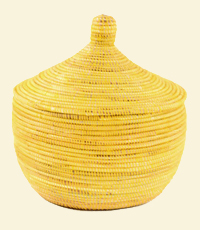
This yellow warming basket was hand-woven by Wolof women in Senegal, West Africa. Made from typha (cattail stalks) and recycled plastic strips used in the production of prayer mats, this lidded basket is not only beautiful, but eco-friendly. A thoughtful way to gift homemade rolls or cookies.
Size: 13″D x 7-8″H – $40
These baskets are imported by Seven Hopes United, a member of the Fair Trade Federation. The company aspires to enrich the lives of communities worldwide through providing a means to a living wage for thousands of artisans and their families, while moving forward to build an alternative market based on the dignity and worth of all people. Seven Hopes United specializes in marketing fairly-traded handmade gifts, jewelry, home decor and personal accessories from producers around the globe. Seven Hopes United supports a trading partnership aimed at obtaining sustainable development for excluded and disadvantaged producers by operating according to fair trade criteria, and investing a portion of our proceeds back into their communities.
Books
Fiction
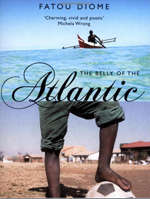
The Belly of the Atlantic
By Fatour Diome (Serpent’s Tail, 2008)
Salie lives in Paris. Back home on the Senegalese island of Niodior, her football-crazy brother Madicke counts on her to get him to France, the promised land where foreign footballers become world famous. The story of Salie and Madicke highlights the painful situation of those who emigrate.
Young author Fatou Diome shot to fame in 2004 with this first novel. It was a best seller in France and has recently been translated into English.
“When it comes to immigration, cliches are abundant. With her first novel, Fatou Diome sweeps them all away. This well-written saga grips the reader at the same time as it confronts prejudice.” – Le Figaro
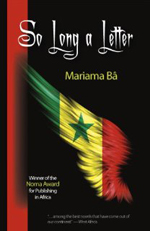
So Long a Letter
By Mariama Ba (WavelandPress, 2012)
Written by Senegal’s most famous female author, Mariama Ba, and considered a classic of contemporary African women’s literature, So Long a Letter has been recognized as one of Africa’s 100 Best Books of the 20th Century.
The brief narrative, written as an extended letter, is a sequence of reminiscences recounted by recently widowed Senegalese schoolteacher Ramatoulaye Fall. Addressed to a lifelong friend, Aissatou, it is a record of Ramatoulaye’s emotional struggle for survival after her husband betrayed their marriage by taking a second wife. This semi-autobiographical account is a perceptive testimony to the plight of educated and articulate Muslim women.
“It is one of the most sensitive, intimate and beautiful contemplations of female lives in a polygamous society.” – A Lonely Planet, The Gambia & Senegal
Non-Fiction
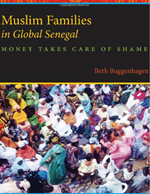
Muslim Families in Global Senegal: Money Takes Care of Shame
By Beth Buggenhagen (Indiana University Press, 2012)
This work focuses on trade and the transmission of enduring social value though cloth, videos of life-cycle rituals, and religious offerings. Highlighting women’s participation in these networks and the financial strategies they rely on, author Beth Buggenhagen reveals the deep connections between economic profits and ritual and social authority. Buggenhagen discovers that these strategies are not responses to a dispersed community in crisis, but rather produce new roles, wealth, and worth for Senegalese women in all parts of the globe.
“A first-rate ethnography of Muslim women in Dakar…. provides not only a wealth of detail but extremely fine-grained analysis of women’s exchange networks, both in the domains of commerce but especially in ritual contexts.” – Robert Launay, Northwestern University
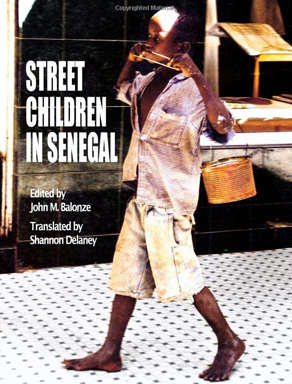
Street Children in Senegal
By John M. Balouziyeh (GYAN France, 2006)
Discover the heart-wrenching story of these children, abandoned, left to marabouts (Islamic teachers) who have exploited them in the name of religion for too long. Where local traditions clash with universal human rights, these children are left in the middle of a struggle to reclaim the human dignity that is properly theirs.
“There is not much literature or information available on street children and so I was very excited to find this publication; though very short. It is most definitely enlightening, with useful information and wonderful photos.” – Amazon Vine Review
John Balouziyeh is a commercial attorney based in the Kingdom of Saudi Arabia. A former Fulbright Fellow on Turkish legal reform, he has worked, studied or volunteered in nations as diverse as Syria, the Sudan, and Senegal.
Films
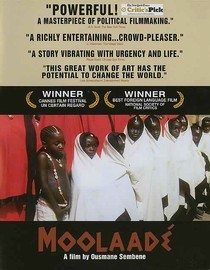
Moolaade – (124 minutes, 2004)
Senegalese writer-director Ousmane Sembene makes an impassioned plea against the practice of salinde, or female circumcision, in this moving portrait of a society in transition. In a West African village run by uncompromising Muslim males, Colle provides safe harbor for young girls fleeing their “cleansing” rituals. But what one man terms “a minor domestic issue” soon puts the whole town on the verge of bloodshed. Screened at the 2004 Cannes Film Festival.
“Usually films about controversial issues are tilted too far toward rage or tear-jerking. Ousmane Sembene, who made this film when he was eighty-one, must have lived enough, suffered enough, and laughed enough to find the wisdom of age.” – Roger Ebert
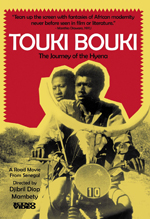
Touki Bouki – (85 minutes, 1973)
Alienated from their society in Senegal, young lovers Mory and Anta fantasize about freedom far from the dusty streets of their hometown of Dakar. They long to escape, and, in their fevered imaginations, their dream city – Paris – doesn’t seem that far away. So, the couple embarks on an exhilarating adventure as they try to hustle money for their passage to a new life.
“[Director] Mambety’s most memorable film – an avant-garde film in a highly personal style.” – Francophone Film
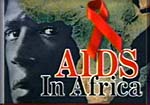
AIDS Prevention in Senegal – (PBS – 7 minutes, 2012)
In some African countries, more than a quarter of the adult population is infected with HIV/AIDS. But, in Senegal, the rate of infection is barely one percent. Watch this PBS video to learn more about some of the activist movements that have contributed to this success.
Music
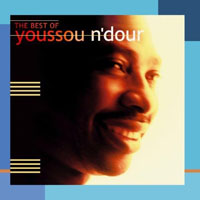
7 Seconds: The Best of Youssou N’Dour
Youssou N’Dour is the best-selling musician in Senegal. After countless forays into the western world, he chose Dakar as a base from which to lead his geopolitical campaign in music.
His strategy is pan-African: “What all of us Africans share is much more important than what we don’t share,” says this elegant, fifty-year old youngster, who grew up in the Medina in Senegal’s capital city, Dakar. Bringing unity to the African continent has been his priority for a long time; the key (along with love, opinions and a great festive sense) lay in the professional practice of music for some thirty-seven years. Yet his career was bound to lead to a form of musical expression that has become universal: Reggae, which was born in Jamaica in the ’60s.
As a man of the media and a fighter for citizens’ rights – from wiping out the African debt to the battle against malaria – Youssou N’Dour has produced multiple albums and performed worldwide.
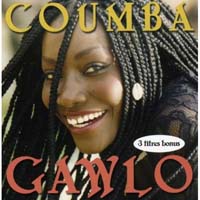
Coumba Gawlo Seck is a Senegalese singer-songwriter and composer who was born in February 1972 in Tivaouane. She is the second-best selling Senegalese singer in Senegal after Youssou N’Dour.
Descended from a long line of Griots (praise singers), Coumba Gawlo Seck has continued to pursue the tribal roots of her music. A graduate of ECMT Martin Luther King (Dakar College), Seck has provided music for several productions by Teatro National Daniel Sorano. Her performance at Telefood 98, in Dakar, was broadcast globally in 1998. The following year, she received a New Talent/Singer award at Kora ’99.
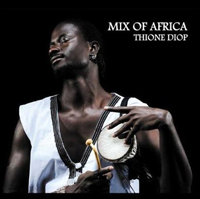
Thione Diop, percussionist from Senegal, West Africa, is widely recognized for his powerfully expressive Djembe performances. He is descended from an ancestral line of Griot drummers in Senegal, West Africa, and is a master of the djembe, sabar, tama, and djun djun.
In 1998, Thione moved to Seattle to teach and perform; a year later he formed Yeke Yeke, a percussion ensemble that has performed the traditional rhythms of West Africa to delighted audiences for the last 10 years.
Thione is also responsible for some incredible regional events, such as the annual Spirit of West Africa Festival and Kasumai Africa, offering the Pacific Northwest (US) audiences a chance to enjoy immersive experiences in African music, dance, and culture.
